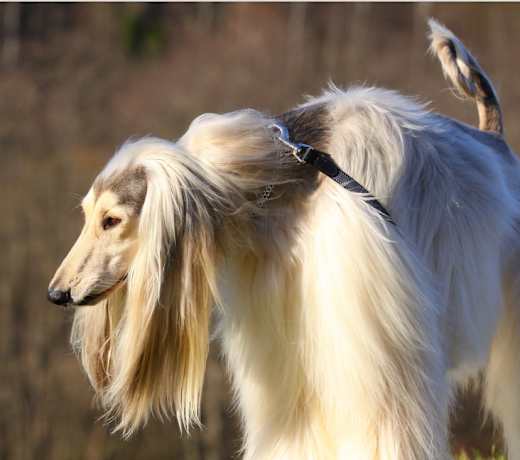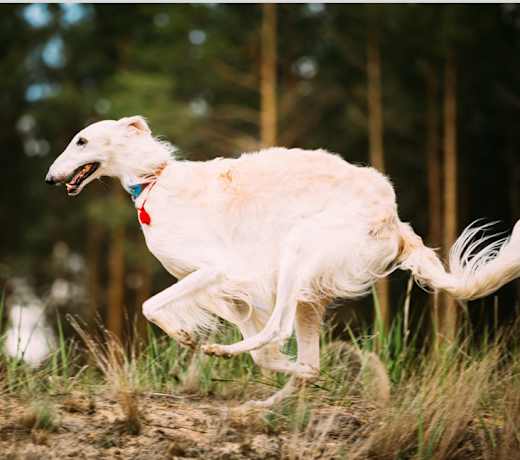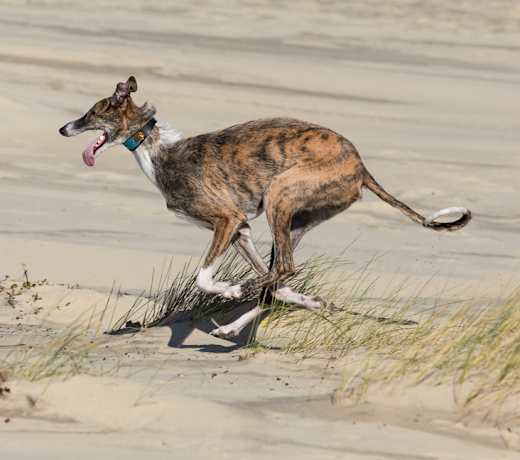You can adopt a Scottish Deerhound at a much lower cost than buying one from a breeder. The cost of adopting a Scottish Deerhound is around $300 in order to cover the expenses of caring for the dog before adoption. In contrast, buying Scottish Deerhounds from breeders can be prohibitively expensive. Depending on their breeding, they usually cost anywhere from $1,000 to $2,500.
Adopt A Scottish Deerhound
1 available Scottish Deerhound near you
Sort by:
Any
Any
Any


SCOTT
Scottish Deerhound
Male, 2 yrs
Baldwin Park, CA
Color
Black
Size
(when grown) Med. 26-60 lbs (12-27 kg)
Details
No Details Provided
Story
1 - 1 of 1 pets available
Search for Scottish Deerhound puppies and dogs
Find adoptable Scottish Deerhound by Beverly Hills, CA
Scottish Deerhound puppies near meScottish Deerhound in Agoura Hills, CAScottish Deerhound in Alhambra, CAScottish Deerhound in Anaheim, CAScottish Deerhound in Arcadia, CAScottish Deerhound in Artesia, CAScottish Deerhound in Azusa, CAScottish Deerhound in Baldwin Park, CAScottish Deerhound in Bell, CAScottish Deerhound in Bellflower, CAScottish Deerhound in Bell Gardens, CAScottish Deerhound in Brea, CAScottish Deerhound in Buena Park, CAScottish Deerhound in Burbank, CAScottish Deerhound in Calabasas, CAScottish Deerhound in Camarillo, CAScottish Deerhound in Carson, CAScottish Deerhound in Cerritos, CAScottish Deerhound in Commerce, CAScottish Deerhound in Compton, CAScottish Deerhound in Covina, CAScottish Deerhound in Cudahy, CAScottish Deerhound in Culver City, CAScottish Deerhound in Cypress, CAScottish Deerhound in Diamond Bar, CAScottish Deerhound in Downey, CAScottish Deerhound in Duarte, CAScottish Deerhound in El Monte, CAScottish Deerhound in El Segundo, CAScottish Deerhound in Fullerton, CAScottish Deerhound in Gardena, CAScottish Deerhound in Garden Grove, CAScottish Deerhound in Glendale, CAScottish Deerhound in Glendora, CAScottish Deerhound in Hawaiian Gardens, CAScottish Deerhound in Hawthorne, CAScottish Deerhound in Hermosa Beach, CAScottish Deerhound in Huntington Beach, CAScottish Deerhound in Huntington Park, CAScottish Deerhound in Inglewood, CAScottish Deerhound in La Canada Flintridge, CAScottish Deerhound in La Habra, CAScottish Deerhound in La Habra Heights, CAScottish Deerhound in Lakewood, CAScottish Deerhound in La Mirada, CAScottish Deerhound in La Palma, CAScottish Deerhound in La Puente, CAScottish Deerhound in Lawndale, CAScottish Deerhound in Lomita, CAScottish Deerhound in Long Beach, CAScottish Deerhound in Los Alamitos, CAScottish Deerhound in Los Angeles, CAScottish Deerhound in Lynwood, CAScottish Deerhound in Malibu, CAScottish Deerhound in Manhattan Beach, CAScottish Deerhound in Maywood, CAScottish Deerhound in Monrovia, CAScottish Deerhound in Montebello, CAScottish Deerhound in Monterey Park, CAScottish Deerhound in Moorpark, CAScottish Deerhound in Norwalk, CAScottish Deerhound in Palos Verdes Estates, CAScottish Deerhound in Paramount, CAScottish Deerhound in Pasadena, CAScottish Deerhound in Pico Rivera, CAScottish Deerhound in Pomona, CAScottish Deerhound in Rancho Palos Verdes, CAScottish Deerhound in Redondo Beach, CAScottish Deerhound in Rolling Hills Estates, CAScottish Deerhound in Rosemead, CAScottish Deerhound in San Dimas, CAScottish Deerhound in San Fernando, CAScottish Deerhound in San Gabriel, CAScottish Deerhound in San Marino, CAScottish Deerhound in Santa Clarita, CAScottish Deerhound in Santa Fe Springs, CAScottish Deerhound in Santa Monica, CAScottish Deerhound in Seal Beach, CAScottish Deerhound in Sierra Madre, CAScottish Deerhound in Signal Hill, CAScottish Deerhound in Simi Valley, CAScottish Deerhound in South El Monte, CAScottish Deerhound in South Gate, CAScottish Deerhound in South Pasadena, CAScottish Deerhound in Stanton, CAScottish Deerhound in Temple City, CAScottish Deerhound in Thousand Oaks, CAScottish Deerhound in Torrance, CAScottish Deerhound in Walnut, CAScottish Deerhound in West Covina, CAScottish Deerhound in West Hollywood, CAScottish Deerhound in Westlake Village, CAScottish Deerhound in Westminster, CAScottish Deerhound in Whittier, CA
Animal shelters near Beverly Hills, CA
Dog shelters near meDog shelters in Agoura HillsDog shelters in AlhambraDog shelters in AnaheimDog shelters in ArcadiaDog shelters in ArtesiaDog shelters in AzusaDog shelters in Baldwin ParkDog shelters in BellDog shelters in BellflowerDog shelters in Bell GardensDog shelters in BreaDog shelters in Buena ParkDog shelters in BurbankDog shelters in CalabasasDog shelters in CamarilloDog shelters in CarsonDog shelters in CerritosDog shelters in CommerceDog shelters in ComptonDog shelters in CovinaDog shelters in CudahyDog shelters in Culver CityDog shelters in CypressDog shelters in Diamond BarDog shelters in DowneyDog shelters in DuarteDog shelters in El MonteDog shelters in El SegundoDog shelters in FullertonDog shelters in GardenaDog shelters in Garden GroveDog shelters in GlendaleDog shelters in GlendoraDog shelters in Hawaiian GardensDog shelters in HawthorneDog shelters in Hermosa BeachDog shelters in Huntington BeachDog shelters in Huntington ParkDog shelters in InglewoodDog shelters in La Canada FlintridgeDog shelters in La HabraDog shelters in La Habra HeightsDog shelters in LakewoodDog shelters in La MiradaDog shelters in La PalmaDog shelters in La PuenteDog shelters in LawndaleDog shelters in LomitaDog shelters in Long BeachDog shelters in Los AlamitosDog shelters in Los AngelesDog shelters in LynwoodDog shelters in MalibuDog shelters in Manhattan BeachDog shelters in MaywoodDog shelters in MonroviaDog shelters in MontebelloDog shelters in Monterey ParkDog shelters in MoorparkDog shelters in NorwalkDog shelters in Palos Verdes EstatesDog shelters in ParamountDog shelters in PasadenaDog shelters in Pico RiveraDog shelters in PomonaDog shelters in Rancho Palos VerdesDog shelters in Redondo BeachDog shelters in Rolling Hills EstatesDog shelters in RosemeadDog shelters in San DimasDog shelters in San FernandoDog shelters in San GabrielDog shelters in San MarinoDog shelters in Santa ClaritaDog shelters in Santa Fe SpringsDog shelters in Santa MonicaDog shelters in Seal BeachDog shelters in Sierra MadreDog shelters in Signal HillDog shelters in Simi ValleyDog shelters in South El MonteDog shelters in South GateDog shelters in South PasadenaDog shelters in StantonDog shelters in Temple CityDog shelters in Thousand OaksDog shelters in TorranceDog shelters in WalnutDog shelters in West CovinaDog shelters in West HollywoodDog shelters in Westlake VillageDog shelters in WestminsterDog shelters in Whittier
Adopting a Scottish Deerhound
Frequently asked questions about acquiring an Scottish Deerhound - the pros and cons of adopting versus going through a breeder, and associated costs.
The easiest way to adopt a Scottish Deerhound would be through a rescue that specializes in Scottish Deerhounds. A great place to start is creating a breed search on Adopt a Pet. The search will show you all the available Scottish Deerhounds in your area.



